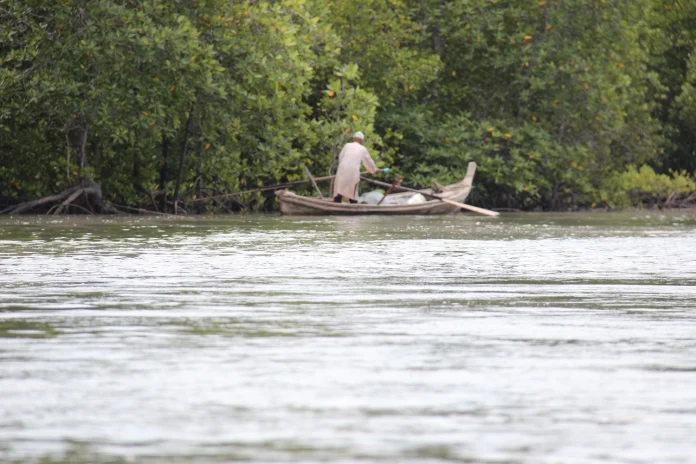A world away from the bustling luxury of Phuket’s Pa Tong Beach, Bang Rong emerges as an unconventional gem on the east coast, distinct from its opulent western counterpart. Here, no stretches of white sandy beaches invite the glitterati, and the notion of exclusive beach clubs and extravagant Sunday brunches feels like a distant dream.
A world away from the bustling luxury of Phuket’s Pa Tong Beach, Bang Rong emerges as an unconventional gem on the east coast, distinct from its opulent western counterpart. Here, no stretches of white sandy beaches invite the glitterati, and the notion of exclusive beach clubs and extravagant Sunday brunches feels like a distant dream.
Bang Rong’s unique charm lies in its past as a pier to Koh Yao and other islands in the Phang Nga Bay. It was never a destination in its own right; rather, it served as a hub for those en route elsewhere or in search of a peculiar commodity – mangrove charcoal.
Mangrove charcoal, renowned for its superior cooking properties, found favor in local restaurants due to its prolonged burn and minimal smoke. Nestled in a lush mangrove forest, Bang Rong was once the go-to place for premium charcoal. However, recognizing the ecological impact, the government revoked the concession, prompting locals to reclaim and reforest the mangrove.

“We decided to transform our community. From a mere stopover, we built a riverside restaurant, complete with an over-water boardwalk through the mangroves. Visitors found solace in sensational home-cooked meals, stretching their legs as they waited for their boat or their food,” shares Prasert, a local guide.
This transformation sparked a new era for Bang Rong, enticing travelers seeking an authentic tropical experience. Community-based tourism blossomed, offering activities like small fishing boat tours along the scenic river, allowing visitors to cast nets with local fishermen.

Bang Rong has evolved into a haven for those seeking a rustic retreat and uncomplicated joys. Journeying east from the Heroine’s Monument in Phuket, travelers encounter local farmers peddling durian, rambutan, mangosteen, jackfruit, and stinky beans. A trip to Bang Rong seamlessly integrates agro and eco-tourism, offering a glimpse into local life.
“Expect a feast of fish and fruits, coupled with sea kayaking, mangrove cruises, waterfall hikes, and encounters with gibbons. If you’re fortunate, you might even learn how to milk a goat from its mother,” Prasert adds.
The Bangpae Waterfall, nestled in Khao Phra Thaeo National Park, lures adventurers on a hike through evergreen forests. The waterfall’s serenity is complemented by a refreshing dip in the drop pool, akin to an exotic infinity pool.


Adjacent to the waterfall lies the Gibbon Rehabilitation Centre, a sanctuary for gibbons once kept as pets. Visitors can engage with the primates and contribute to the center’s mission.
Lunch beckons at a community-run floating restaurant by Bang Rong Canal, renowned for sustainably caught seafood and local produce. A boat ride or leisurely sea kayak paddle along the canal offers picturesque views of the estuary.

The revitalized mangrove forest has become a sanctuary for diverse wildlife, providing a tranquil ambiance with natural white noises – the soothing sounds of ocean waves, rustling leaves, and birdsong. Mangrove birds like the Collared Kingfisher, Mangrove Whistler, and White Bellied Sea Eagle enhance the immersive experience.
“We’ve found common ground regarding mangrove use. While you can cut down trees for essential needs, profiting from them is strictly prohibited,” emphasizes the local guide, underscoring the community’s commitment to sustainable practices.

